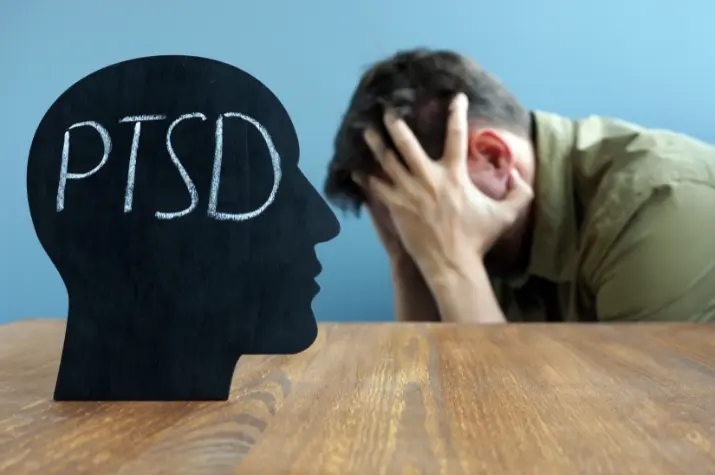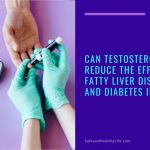
It’s taken over 20 years to get a clear picture of the long-term health effects related to 9/11 – cancers, diseases, and illnesses. While it is widely known that the lingering health effects of the attacks include 70+ types of cancer, various non-cancerous 9/11 illnesses have affected thousands of responders and the entire downtown population of civilian office and other workers, residents, and students.
These many illnesses include airway and digestive disorders, including COPD, sarcoidosis, and interstitial lung disease – conditions that are often not diagnosed until many years (or even decades) after exposure to the toxic 9/11 dust.
Exposure to Toxins Led to A Myriad of Health Issues
When the WTC buildings collapsed, the destruction released a huge cloud of toxic dust and debris, containing numerous harmful substances including asbestos, lead, jet fuel, heavy metals, pulverized concrete, and other toxic agents.
This deadly mix was inhaled by thousands of individuals present in all of lower Manhattan, as far north as Houston Street. As cleanup and recovery operations continued until mid-2002, and the toxic cloud lingered in the air over Manhattan, more and more responders and workers/residents/students were exposed to these harmful substances.
This exposure is directly linked to a variety of health problems that have since been experienced by those who lived, worked, studied, or were otherwise present during and the year after the terrorist attacks.
Respiratory Disease, Including Asthma
One of the most common non-cancerous health effects of the 9/11 terrorist attacks is respiratory disease.
Due to the immense exposure to pollutants in the dust plume and burning fumes, many individuals experienced severe coughing, shortness of breath, acute rhinitis, sinusitis, and other respiratory symptoms in the immediate aftermath of the attacks. Inhaling chemicals that were released in the fires resulted in acute injury to the airways.
As time passed, some survivors and responders developed chronic conditions such as asthma, chronic obstructive pulmonary disease (COPD), chronic rhinosinusitis, and other chronic respiratory diseases. According to the Centers for Disease Control and Prevention (CDC), the incidence of asthma among responders and survivors is 30%, which is significantly higher than the national average, and sinusitis is seen in about 40% of the 9/11 responder and survivor population.
Materials like asbestos, which was used in the construction of the Twin Towers, have led to asbestosis, a chronic lung disease with symptoms including shortness of breath, chest pain, and a persistent dry cough.
Silicosis is another potential outcome, stemming from the inhalation of fine silica dust from tons of pulverized concrete. This condition scars the lungs and makes breathing increasingly difficult.
Gastroesophageal Reflux Disease (GERD) and Other Gastrointestinal Conditions
Another extremely common 9/11 illness experienced by survivors and responders is Gastroesophageal Reflux Disease (GERD).
GERD is a gastrointestinal condition where stomach acid frequently flows back into the tube connecting your mouth and stomach, leading to symptoms like heartburn, abdominal and chest pain, dysphagia, laryngitis, and new or worsening asthma.
After the terrorist attacks of 9/11, a notable number of exposed individuals started showing symptoms of GERD.
Additionally, other gastrointestinal conditions, likely due to the ingestion of contaminants, have also been prevalent among 9/11 responders and survivors.
PTSD and Other Mental Health Effects

The September 11, 2001 attacks affected more than just physical health; the emotional and psychological trauma was immense and, for many, lasting. PTSD became a common ailment among those who witnessed the events firsthand, lost loved ones, or participated in the rescue and recovery efforts.
PTSD, depression, anxiety, substance abuse, and sleep disorders are among the mental health effects that have been experienced by 9/11 survivors and responders. For countless individuals, the emotional scars of that day have persisted, impacting their lives for years since the attacks.
Impact on First Responders from Outside NYC
While the brave men and women of the NYPD, FDNY, and the Port Authority are often at the forefront of discussions about 9/11’s first responders, it’s important to remember that many responders came from outside New York City.
Firefighters, police officers, and emergency personnel from neighboring states and even further afield rushed to Manhattan to assist with the rescue and recovery efforts in the wake of the attacks.
These individuals, regardless of where they hailed from, are equally at risk of the health conditions associated with 9/11 and equally deserving of support and compensation. They returned to their home states and cities, often carrying with them the physical and emotional scars of their experiences in responding to Ground Zero.
The Road to Diagnosis and Treatment
For many 9/11 responders and survivors, the path to proper diagnosis and treatment has been a long and arduous one.
Due to the unique and unprecedented nature of the attacks and the subsequent exposure to myriad toxins, many faced initial skepticism or misdiagnosis when presenting with health issues in the months and years following 9/11.
Effective and comprehensive treatment often requires a multidisciplinary approach involving pulmonologists, cardiologists, mental health professionals, and others. Recognizing and treating these conditions early can lead to better outcomes and improved quality of life.
Why Legal Support is Vital
Beyond the obvious challenge of navigating the complex compensation claims process, legal support is crucial for another reason: advocacy.
With a knowledgeable and dedicated 9/11 attorney by your side, you’re not just getting assistance with paperwork and filings. You’re gaining a powerful advocate who can fight for your rights, ensuring that you are adequately compensated.
In many cases, 9/11 responders and survivors face challenges in proving the connection between their health conditions and their exposure post-attacks. An attorney focused on 9/11 health and compensation claims can provide invaluable assistance in gathering evidence and presenting a compelling case.
How a 9/11 Attorney Can Help
For those suffering from 9/11-related health conditions, it’s important to know that there’s support available. The James Zadroga 9/11 Health and Compensation Act (Zadroga Act) was designed to provide medical monitoring and treatment, and financial support to those affected by the 9/11 terrorist attacks.
The Zadroga Act established two programs: the September 11th Victim Compensation Fund (VCF), which provides financial compensation to those impacted by the attacks, and the World Trade Center Health Program (WTCHP), which provides medical monitoring and treatment to 9/11 survivors and responders.
By consulting an experienced 9/11 attorney, you can:
- Understand the full extent of the WTC Health Program and how it pertains to your specific health condition.
- Navigate the complex claims process, ensuring that all documentation and evidence are in place.
- Maximize the compensation you’re entitled to in the minimum amount of time, with consideration of medical bills, loss of earnings, government benefits, and other relevant factors.
While the non-cancerous health impacts of 9/11 might not always be at the forefront of discussions, they remain significant or debilitating for many 9/11 survivors and responders.
Those affected deserve support, medical treatment, and financial compensation. With the right legal support, accessing these benefits can be a smoother and more streamlined process.
About The Author:
Stacey Smith is a freelance health writer. She is passionate about writing about women’s health, dental health, diabetes, endocrinology, and nutrition and provides in-depth features on the latest in health news for medical clinics and health magazines.




